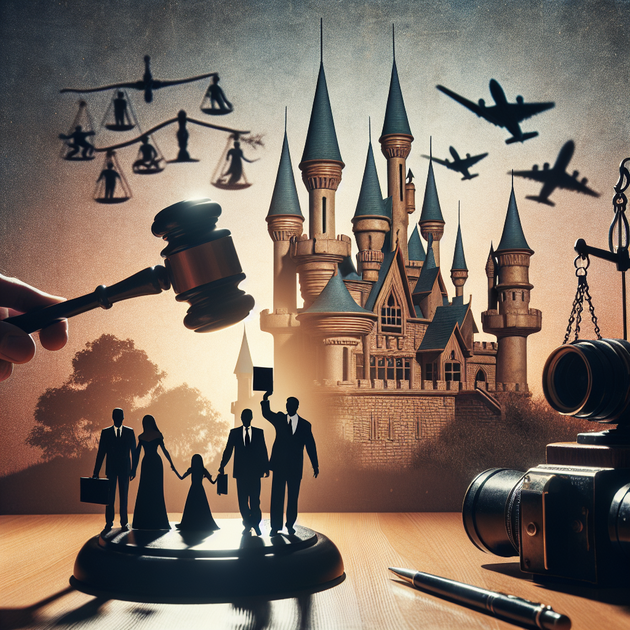Ever think a late-night host could spark a major legal battle at one of the world’s biggest entertainment companies? That’s exactly what’s happening now as Disney is hit with a shareholder lawsuit over the suspension of Jimmy Kimmel.
Why Are Shareholders Suing Disney?
The phrase “Disney shareholder lawsuit” might sound like dry financial news, but there’s more drama here than in your average sitcom episode. After Jimmy Kimmel was suspended—details around why are still swirling—some Disney shareholders decided they weren’t happy with how leadership handled things. They’ve filed a legal complaint claiming that the company’s response to the situation hurt not just its reputation but also its bottom line.
At its core, this isn’t just about one celebrity or even a single company. It raises some big questions:
- How much say should shareholders have in day-to-day decisions?
- What’s the right way for companies to handle public controversies?
- Could this case set new rules for how other media giants react to scandals?
The Stakes for Corporate Governance
You might wonder why investors care so much about one TV host. For them, it’s about trust and money. When something controversial happens—like suspending a high-profile figure—shareholders worry it’ll hurt stock prices or push away viewers (and advertisers). That’s where “corporate governance” comes in—a fancy way of talking about how companies make decisions that affect everyone involved.
Some shareholders argue that suspending Kimmel without clear communication was reckless. They’re claiming executives didn’t do enough to protect the company’s image or finances. Others say management needs flexibility to act fast when PR disasters strike.
This back-and-forth isn’t just nitpicking; it could influence how boardrooms everywhere deal with hot-button issues in the future.
How Entertainment Law Plays Into This
Entertainment law isn’t always glamorous—it’s not all red carpets and movie deals. In cases like this Disney shareholder lawsuit, it means figuring out whether company leaders followed their own policies and fulfilled their responsibilities to investors.
Lawsuits like these often hinge on:
- Transparency: Did executives inform investors about risks promptly?
- Accountability: Did leadership act in shareholders’ best interests?
- Due Process: Was proper procedure followed before making public decisions?
If courts decide in favor of the shareholders, we could see stricter guidelines for how companies manage public relations crises—and maybe even new laws on what boards must disclose.
Anecdote: When Public Backlash Hits Home
A few years ago, I remember chatting with a friend who owned stock in another big media company during a completely different controversy (let’s just say it involved a superhero film gone sideways). Her main concern wasn’t about creative choices—it was whether her investment would tank because of messy headlines and unclear leadership responses.
It turns out she wasn’t alone; lots of everyday investors start asking tough questions when their money feels at risk because of front-page scandals. This latest legal salvo against Disney over Jimmy Kimmel is another example of those ripple effects.
What Could Happen Next?
So where does all this leave us—and more importantly, Disney? If the court sides with shareholders in this lawsuit, it could mean hefty fines or new checks on executive power at big studios. Even if Disney wins in court, you can bet boardrooms across Hollywood will be watching closely (and probably drafting new crisis plans).
For fans and viewers, there might not be immediate changes—but you may notice companies being more transparent or cautious when controversies flare up on- or off-screen.
The Big Takeaway
At first glance, another celebrity controversy looks like business as usual for Hollywood. But when shareholders demand answers—and take those demands to court—it signals real change could be on the horizon for how media giants operate.
What do you think? Should investors have more power over how companies handle scandals involving stars like Jimmy Kimmel—or should creative decisions stay out of the courtroom?

Leave a Reply